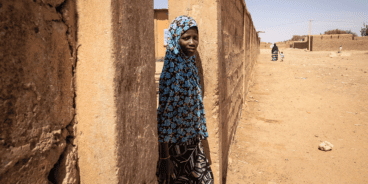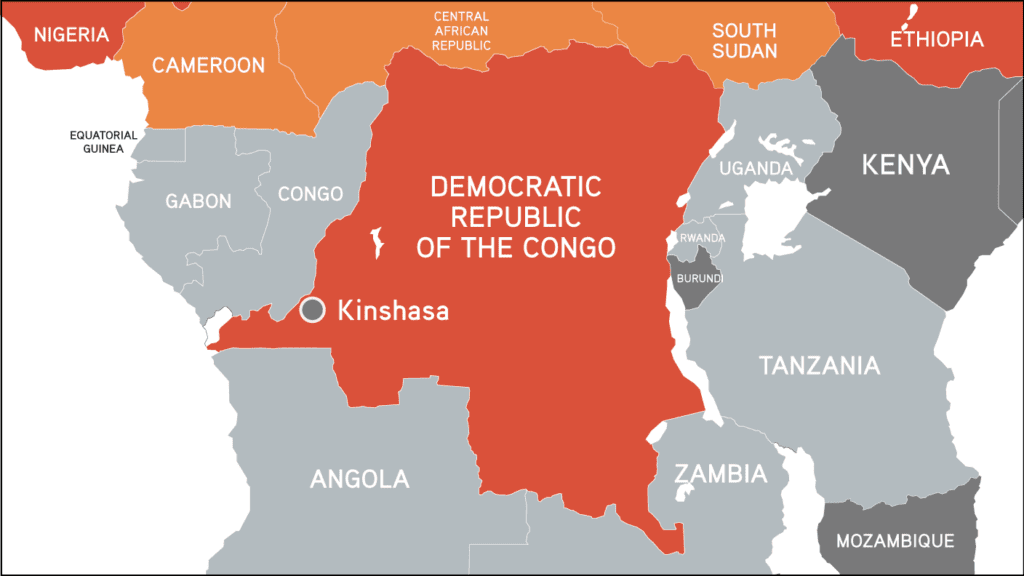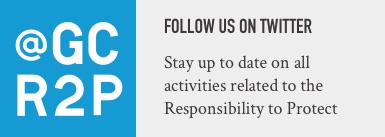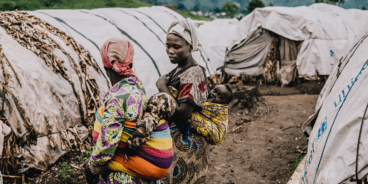
Democratic Republic of the Congo
Various armed groups in the Democratic Republic of the Congo recurrently and indiscriminately attack civilian populations, committing violations that may amount to crimes against humanity.
BACKGROUND:
Attacks by armed groups and recurring inter-communal violence have threatened populations in the eastern provinces of the Democratic Republic of the Congo (DRC) for nearly 30 years. More than 120 militias and armed groups actively operate in Ituri, North Kivu, South Kivu and Tanganyika provinces, many of whom regularly perpetrate widespread violations and abuses against civilians that may amount to crimes against humanity and war crimes. While combating armed groups, the government’s armed forces (FARDC) and police have also been implicated in violations of International Humanitarian Law (IHL) and International Human Rights Law (IHRL), including sexual violence, torture and arbitrary killings, some of which may amount to crimes against humanity and war crimes.
Despite military offensives conducted by the FARDC, with assistance from the UN peacekeeping mission (MONUSCO), violence has escalated in the eastern provinces for several years amidst a surge in attacks by groups like the Allied Democratic Forces (ADF), Cooperative for the Development of Congo (CODECO) and the March 23 Movement (M23), among others. Although the government declared military rule in North Kivu and Ituri in May 2021 under a so-called “state of siege” to confront armed groups, and bilateral and regional forces have been deployed, these efforts have failed to stem violence or attacks against populations. At least 2,446 civilians were killed in South Kivu, North Kivu and Ituri provinces between January and late October 2023. Ongoing attacks have had a devastating impact on children and women, with a marked increase in sexual violence and grave violations against children. Cases of gender-based violence increased five-fold over the last year.
Inter-communal conflict between the Teke and Yaka communities – sparked by disputes over land and customary rights in western Mai-Ndombe province – intensified and expanded into neighboring provinces throughout 2023, leaving hundreds of civilians dead on both sides and scores of villages, schools and medical facilities destroyed. The Mobondo militia – a group of predominantly Yaka fighters – aimed to drive the Teke from their villages. Although the conflict has decreased in intensity and customary authorities signed a peace deal during April 2024, sporadic violence and heightened tensions remain. The Congolese government has reportedly integrated surrendered Mobondo members into the FARDC and sent hundreds of them to eastern DRC to fight M23 without any prior vetting to ensure that they were not previously involved in serious human rights abuses.
Protracted and resurgent violence and insecurity have exacerbated an already dire humanitarian crisis. At least 7.3 million Congolese are internally displaced and face grave protection risks. Armed groups, in particular CODECO, have perpetrated targeted attacks against displacement sites in eastern DRC, killing hundreds of civilians and causing further displacement. At times the FARDC and MONUSCO have failed to prevent or stop these attacks.
The International Criminal Court has been investigating serious crimes in the DRC since 2004. In 2023 the DRC government requested the Court investigate alleged crimes committed in North Kivu since 1 January 2022, prompting the Chief Prosecutor to announce during June 2023 his intention to conduct a preliminary examination.
RECENT DEVELOPMENTS:
Following a request by the Congolese government for an accelerated withdrawal of MONUSCO, the UN Security Council (UNSC) adopted a resolution on 20 December 2023 which renewed MONUSCO’s mandate for a year, while establishing its gradual, responsible and sustainable withdrawal, starting with a drawdown from South Kivu by 30 April. Peacekeepers remain in North Kivu and Ituri, continuing to carry out their civilian protection mandate. In mid-December the Southern African Development Community Mission in the DRC was deployed in North Kivu.
The security situation in North Kivu has further deteriorated since early October due to ongoing fighting between M23 and the FARDC supported by a coalition of local militias (known as Wazalendo). The Democratic Forces for the Liberation of Rwanda also remains active. M23 has made major territorial advances that have brought the conflict closer to the provincial capital, Goma, causing mass displacement. In areas under their control, M23 has reportedly perpetrated unlawful killings, rape and other alleged war crimes, while the FARDC and its proxies have perpetrated extrajudicial executions, arbitrary arrests and detentions. The intense fighting is marked by the indiscriminate use of heavy artillery, shelling and bombings in populated areas. On 3 May shelling hit two displacement sites around Goma, killing at least 35 civilians.
Civilians also remain at risk in Ituri, with the ADF, CODECO and other groups launching recurrent attacks against civilians and civilian property in Djugu, Irumu and Mambasa territories. Nearly 200 violent attacks occurred in the first three months of the year. According to the UN, between 1 January 2023 and 19 March 2024 at least 1,533 civilians were killed, 469 injured and 712 kidnapped.
ANALYSIS:
Various armed groups have exploited the absence or weakness of state authority in eastern DRC to perpetrate attacks against civilians for decades. Rampant impunity and competition for control of profitable minerals have enabled the proliferation of such groups. Ethnically motivated and deliberate attacks against displaced Congolese have led to waves of secondary displacement while sexual violence is once again being used as a weapon of war to terrorize and control communities.
Amid widespread violence across the eastern provinces, the phased withdrawal of MONUSCO has raised concerns regarding the future of civilian protection. The drawdown of MONUSCO from areas where peacekeepers regularly patrolled may exacerbate an existing security and protection vacuum, putting civilians at further risk, particularly as armed groups remobilize in South Kivu. FARDC offensives often trigger violent reprisals by armed groups who target civilians. By integrating members of armed groups who have been implicated in past crimes into the FARDC, the government has encouraged impunity, while posing risks to civilians.
The UNSC-mandated Panel of Experts on DRC and several others have found evidence or alleged that Rwanda supported M23 in 2013 and has provided logistical support and fought alongside the group during its resurgence since November 2021. M23’s renewed offensive has aggravated regional tensions and provoked an increase in hate speech and incitement to discrimination in DRC, particularly targeting Tutsis/Banyarwanda individuals and others. UN officials have warned about the potential for a direct confrontation between DRC and Rwanda.
RISK ASSESSMENT:
-
- Indiscriminate use of heavy artillery, shelling and bombings near civilian areas, including displacement camps, hospitals and schools, as well as threats posed by unexploded ordnance.
- Ongoing cross-border tensions between Rwandan and Congolese officials.
- Long-standing, unaddressed inter-communal tensions and rivalries, as well as the politicization of identity.
- Growing trend of conflict-related sexual violence, disproportionately impacting displaced women and girls, and the presence of armed actors around displacement sites.
- Existing security vacuum exacerbated by FARDC deployment to fight M23, emboldening other armed groups to target civilians.
NECESSARY ACTION:
The DRC government and all regional and bilateral forces must ensure that protecting civilians and upholding human rights remain their primary priorities as they address the ongoing threat of armed groups. A vetting process within the FARDC should be implemented to identify and provisionally remove individuals who may have been implicated in serious human rights violations while cases are pending. All forces should prevent, investigate and publicly report on violations and abuses of human rights and IHL violations.
Neighboring states should ensure that forces active in the DRC refrain from illicit activities. The international community should suspend military assistance to governments found to be supporting armed groups.
MONUSCO must maintain a protective environment throughout the phases of disengagement, including by developing integrated provincial protection plans, in close consultation with civil society. The international community should provide adequate and predictable financing to other UN entities that assume additional functions as MONUSCO draws down, including the UN Joint Human Rights Office. The government should ensure the deployment of the FARDC and police in areas of South Kivu where people have relied upon MONUSCO for protection, accompanied by training on IHL and IHRL.
Related Content




